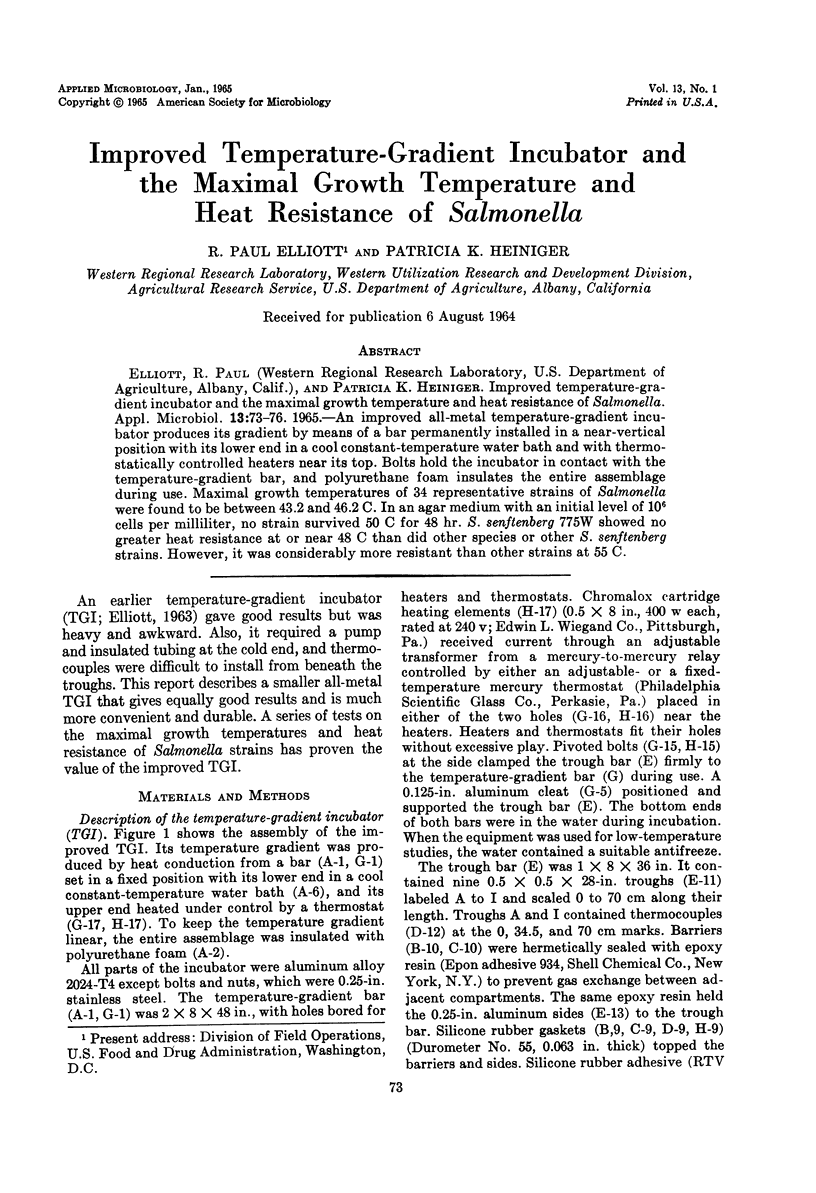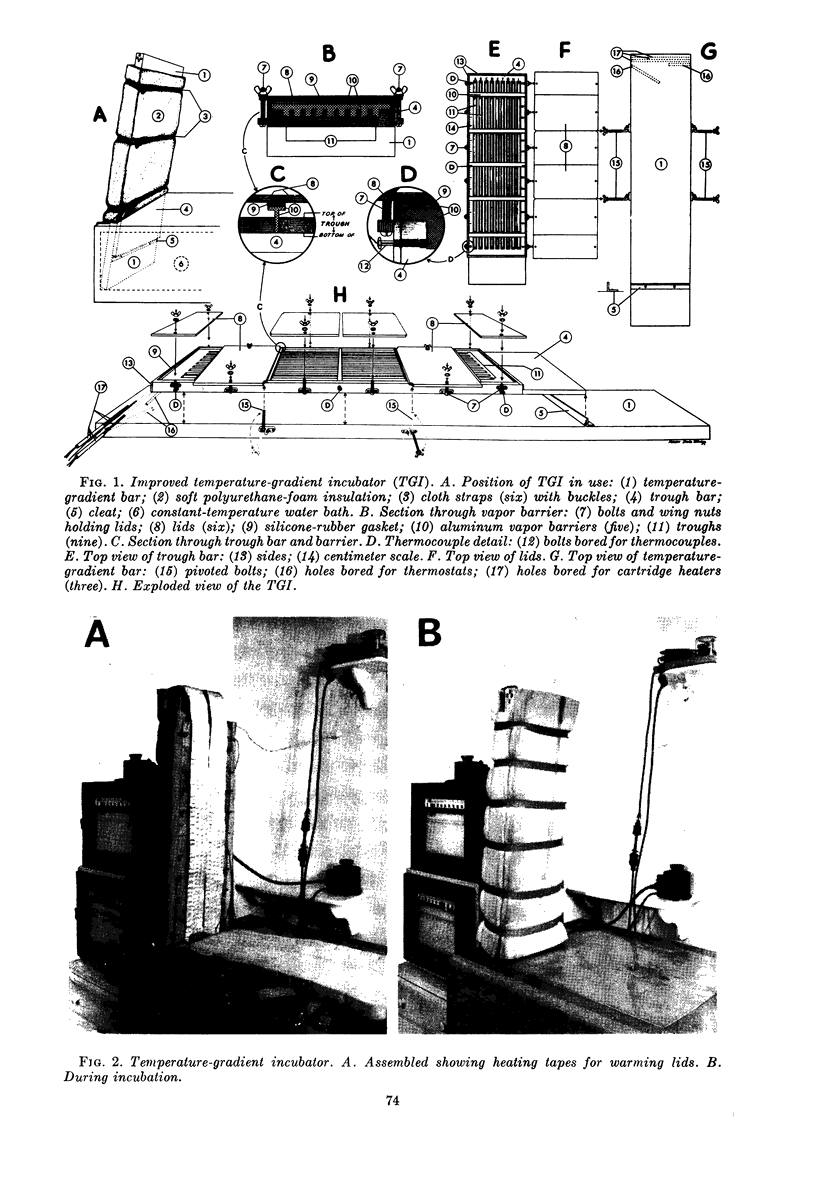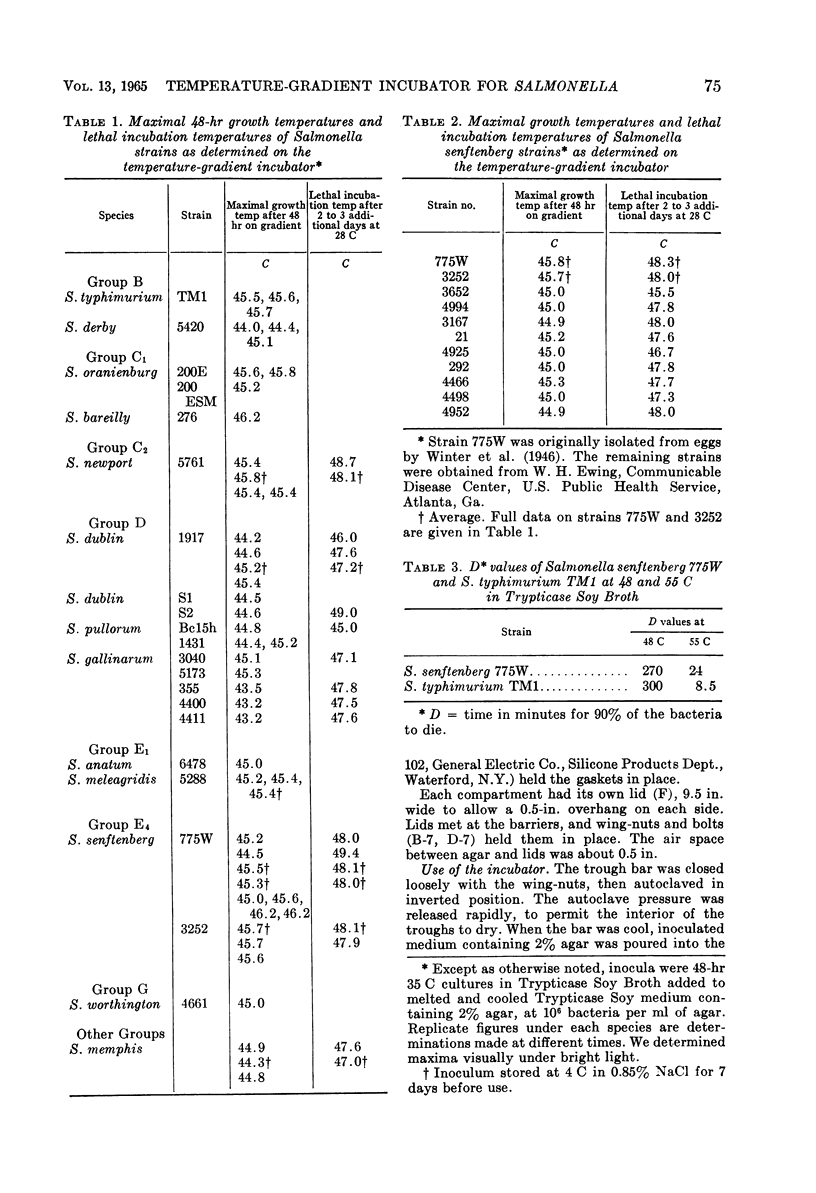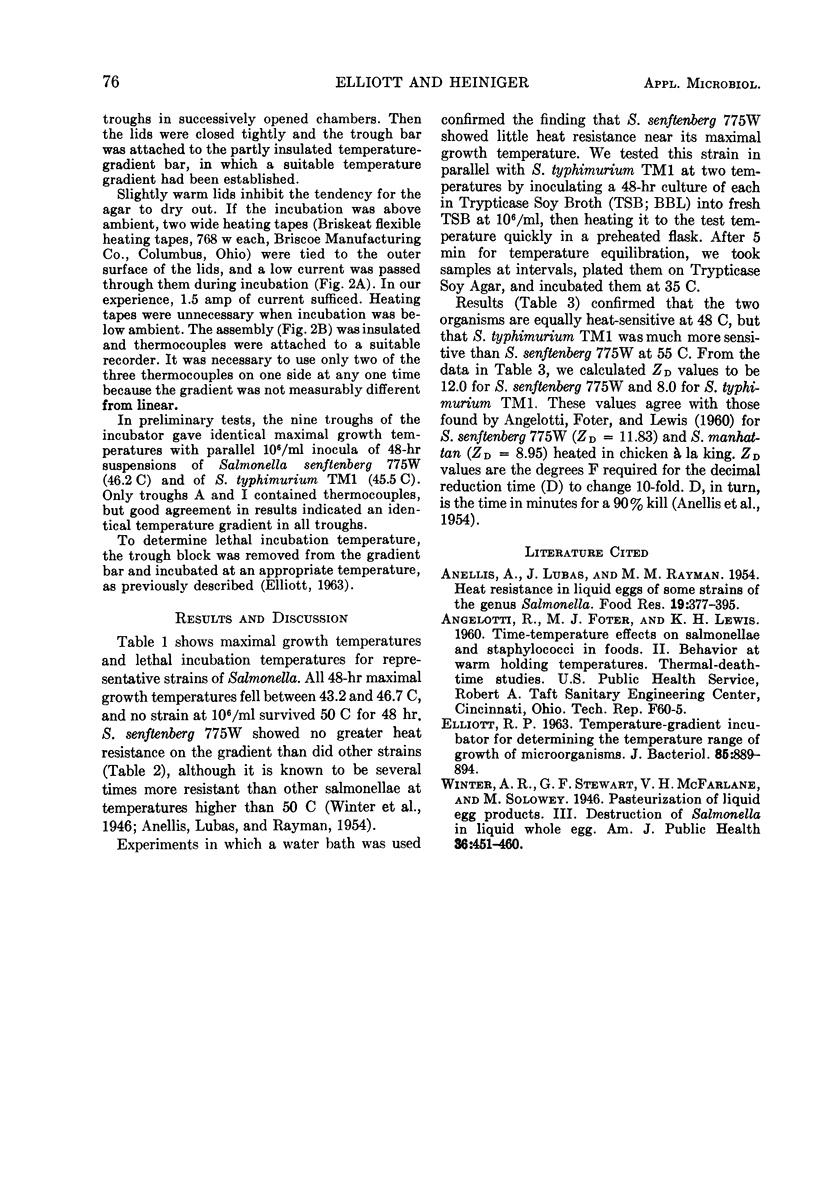Abstract
An improved all-metal temperature-gradient incubator produces its gradient by means of a bar permanently installed in a near-vertical position with its lower end in a cool constant-temperature water bath and with thermostatically controlled heaters near its top. Bolts hold the incubator in contact with the temperature-gradient bar, and polyurethane foam insulates the entire assemblage during use. Maximal growth temperatures of 34 representative strains of Salmonella were found to be between 43.2 and 46.2 C. In an agar medium with an initial level of 106 cells per milliliter, no strain survived 50 C for 48 hr. S. senftenberg 775W showed no greater heat resistance at or near 48 C than did other species or other S. senftenberg strains. However, it was considerably more resistant than other strains at 55 C.
Full text
PDF



Images in this article
Selected References
These references are in PubMed. This may not be the complete list of references from this article.
- ELLIOTT R. P. TEMPERATURE-GRADIENT INCUBATOR FOR DETERMINING THE TEMPERATURE RANGE OF GROWTH OF MICROORGANISMS. J Bacteriol. 1963 Apr;85:889–894. doi: 10.1128/jb.85.4.889-894.1963. [DOI] [PMC free article] [PubMed] [Google Scholar]
- Winter A. R., Stewart G. F., McFarlane V. H., Solowey M. Pasteurization of Liquid Egg Products: III. Destruction of Salmonella in Liquid Whole Egg. Am J Public Health Nations Health. 1946 May;36(5):451–460. [PMC free article] [PubMed] [Google Scholar]



